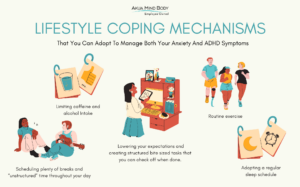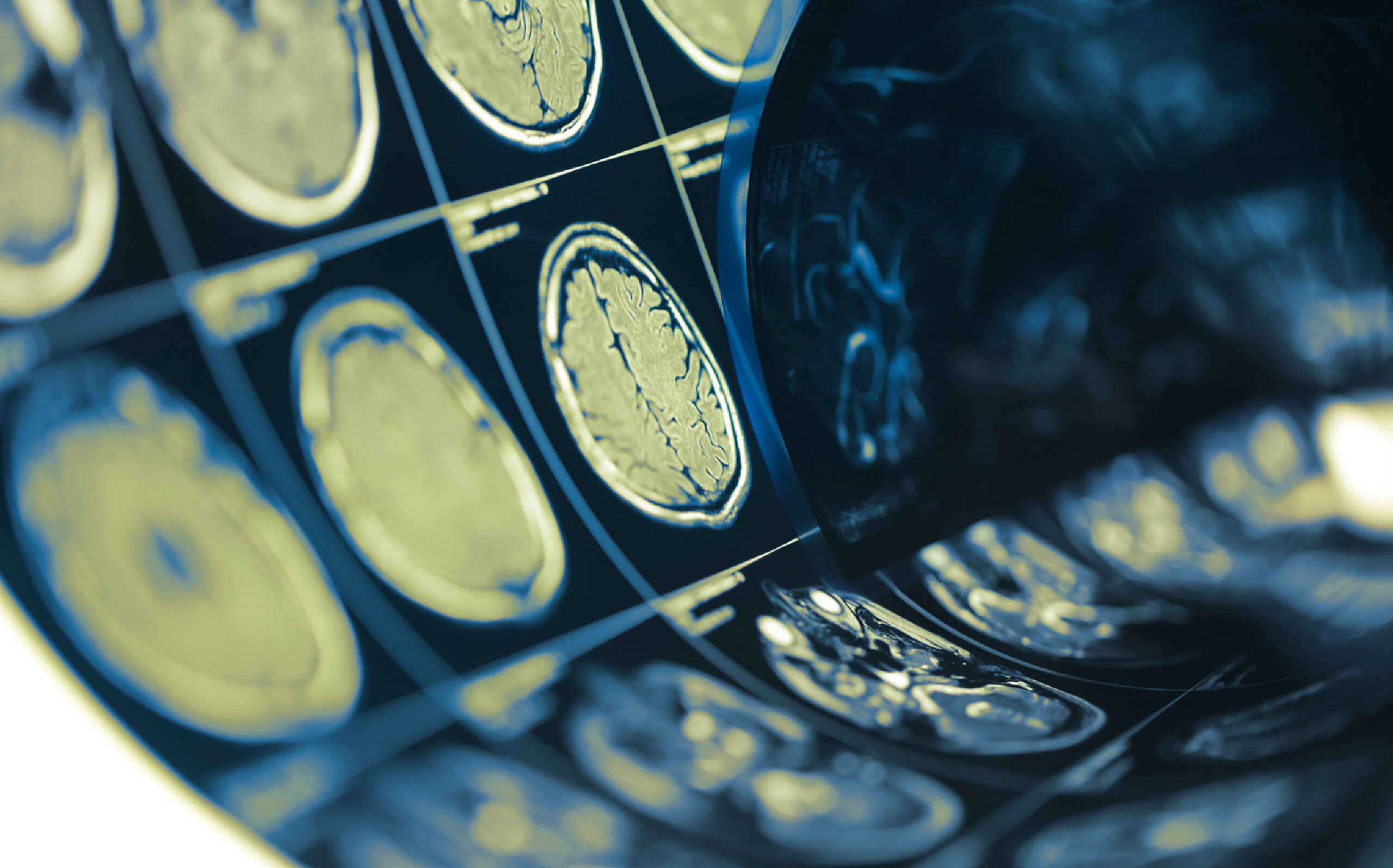Attention-deficit hyperactivity disorder (ADHD) is a common neurodevelopmental disorder that affects an estimated 4% of the world’s population. ADHD is usually diagnosed in childhood however it is a lifelong disorder. It is characterized by patterns of inattention, hyperactivity, and impulsivity that can make it difficult for you to pay attention and control your behaviors.
You may notice that your symptoms of ADHD leave you feeling stressed and uncertain in everyday environments which can often fuel an anxiety disorder. ADHD is commonly treated with prescription stimulant medications such as Adderall and there is a very strong connection between ADHD and anxiety, but can Adderall cause or worsen your anxiety?
What is Adderall?
Adderall is a prescription medication that’s classified as a central nervous system stimulant since it works on the brain’s neurotransmitters (such as dopamine) that affect hyperactivity and impulse control. The FDA approved Adderall in 2001, and it’s currently used to treat ADHD and narcolepsy.
Other prescription stimulants in the same class include methylphenidate (Ritalin), lisdexamfetamine (Vyvanse), methylphenidate extended-release (Concerta), and dextroamphetamine (Dexedrine). The DEA classifies Adderall as a Schedule II drug, the same as cocaine, indicating its potential for abuse is high.
The Misuse of Adderall
A study in the Journal of American Pharmacy found that Adderall is frequently being purchased through online pharmacies without prescriptions. These “rough” pharmacies are prevalent in Google search engines, enabling individuals to buy from unsafe sources and potentially misuse this medication. Adderall is commonly misused as a “study drug” in high school and college students or to increase alertness in shift workers.
Although Adderall does help with impulse control and alertness, it not only has a high potential for misuse but it also may be contributing to your anxiety.
Is Adderall causing my anxiety?
Probably not, but it may have short-term effects. Since Adderall is a stimulant it can have side effects such as nervousness, shakiness, restlessness, problems getting to sleep and staying asleep, and dizziness which are symptoms often associated with anxiety. However, if these symptoms do occur, they generally lessen or disappear after a short time. In fact, there is no research proving that stimulants such as Adderall can cause anxiety. Stimulants, such as Adderall remain the first-line prescription medication for individuals diagnosed with both anxiety and ADHD, but it is important that you monitor any side effects and only take this medication as prescribed.
However, if you are experiencing anxiety-related symptoms, you want to discuss this with your physician because you may be having side effects from Adderall or you may have an undiagnosed anxiety disorder.
Can I have anxiety and ADHD?
Although Adderall may induce short-term symptoms that are similar to anxiety, it is more plausible that you have a co-occurring anxiety disorder and ADHD. ADHD and anxiety often co-exist, and they can also exacerbate the effects of each other. For example, approximately 50% of adults with ADHD also have generalized anxiety disorder (GAD).
Symptoms such as fidgeting and trouble concentrating are hallmarks of both ADHD and anxiety and as a result, it’s important that your provider assesses you for an anxiety disorder when they are diagnosing you with ADHD and vice versa.
Your Symptoms May Amplify
The relationship between ADHD and anxiety is bidirectional, meaning each condition can amplify the symptoms of each disorder. If you have ADHD and anxiety, the symptoms of your anxiety can intensify your struggles with concentration, decision-making, and social interactions which are a hallmark of your ADHD. Your constant state of heightened worry and fear can also act as a barrier, preventing you from seeking help or engaging in therapies for ADHD. Your impulsivity and inattention which are classic ADHD symptoms can increase your unease or worry, worsening your anxiety. This can be a vicious cycle propelling both disorders.
If you have ADHD but do not meet the diagnostic requirement for an anxiety disorder, you more than likely still experience situational anxiety (a form of anxiety that happens in response to new, unfamiliar, or stressful situations). This can happen on a daily basis because ADHD often causes time blindness, exaggerated emotions, and trouble concentrating which can provoke situational anxiety. Other symptoms that stem from ADHD such as procrastination, tardiness, and fear of others judging you, can also provoke anxiety which can in turn, worsen ADHD symptoms.
Treatment for my anxiety and ADHD

Since ADHD and anxiety often co-occur together and stimulants generally do not increase anxiety symptoms, stimulants such as Adderall are still commonly prescribed for both disorders however the first line of treatment is a combination of psychotherapy and medication. However, it is possible that Adderall can potentially worsen your anxiety, so medication is a delicate balance and it’s important to continue having open and honest conversations with your prescribing healthcare professional. Common psychotherapy approaches used to treat ADHD and anxiety include cognitive behavioral therapy and dialectical behavioral therapy.
Psychotherapy helps you recognize your emotions and symptoms both related to anxiety and ADHD so you can rationalize what you are feeling and experiencing. You can then learn skills and tools to help navigate these symptoms in real-life scenarios.
There are also plenty of lifestyle coping mechanisms that you can adopt to manage both your anxiety and ADHD symptoms. These include routine exercise, limiting caffeine and alcohol intake, adopting a regular sleep schedule, scheduling plenty of breaks and “unstructured” time throughout your day, lowering your expectations, and creating structured bite-sized tasks that you can check off when done.
How AKUA Behavioral Health can help
AKUA Behavioral Health is a full-service treatment center that provides treatment for substance use disorders and mental health disorders, including anxiety disorders. If you are struggling with anxiety or are showing signs of stimulant (Adderall) misuse or abuse, our treatment team can help you navigate this journey and provide an individualized treatment strategy that is tailored for you.




